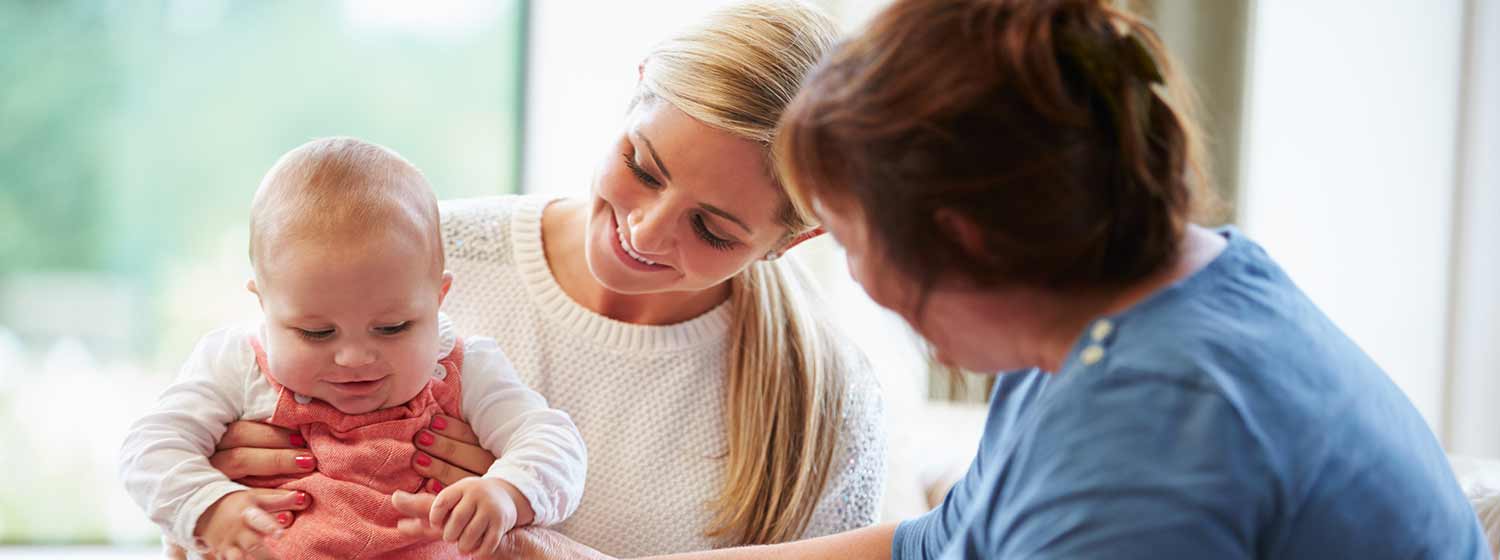It is important to tell your GP, midwife or health visitor about your thoughts and feelings early, to ensure you get the help you need earlier, rather then waiting until things get worse.
Perinatal mental health
The perinatal period includes your pregnancy, labour, birth and the postnatal period up until your baby reaches one year of age.
Mental illness can affect anybody regardless of previous history. Some will experience a mental health problem for the first time during their pregnancy, or after the birth of their baby.
Others will have had ongoing mental health problems, and then become pregnant, or will have had past mental health problems.
Getting pregnant and having a baby will be very exciting for most people; however it can come with new challenges and demands. Even if you have not experienced mental health problems in the past, the physical and emotional changes pregnancy and childbirth brings can sometimes trigger a mental illness.
The most common mental health problems in pregnancy and after the birth of a baby are depression and anxiety. This figure increases during the first year following childbirth.
Frequently asked questions
What happens if I've had mental health problems in the past, but I am currently well?
If you have suffered from a mental health problem in the past, which was treated and you are now well, then it is still really important that you share this information with your community midwife as soon as possible.
The severity of your previous condition will depend on the management of your care. For some, pregnancy and childbirth can cause them to become unwell again due to the physical and emotional changes that having a baby can bring.
Should I stop my medication?
You may worry about taking medication in pregnancy. You need to think carefully about what the risks and benefits of medication are for you and your baby. It may be safer to take medication in pregnancy than to stop. This is more likely if you have had a more severe illness.
If you are worried, or want to get pregnant and have questions surrounding your medication, then discuss this first with your psychiatrist or GP. They can give you up-to-date information about medications in pregnancy. They can also help you to decide what is best for you and your baby.
It is very important that you don't stop your medication or reduce the dose suddenly. You are more likely to become unwell again if you do this without advice.
For further information regarding medication in pregnancy and while breastfeeding your baby, please visit:
Best use of medicines in pregnancy
Printable Leaflets | Drugs in Pregnancy - Oxford Health
Antidepressants and Breastfeeding - The Breastfeeding Network
What can I expect from my pregnancy?
Mental wellbeing is as important as physical health for the whole family. When we first see you (your 'booking' appointment) we will ask you about your past medical history, including your mental health and wellbeing and that of your family, and any medication taken. Various medical professionals will ask routine questions about your thoughts and feelings throughout your pregnancy.
At booking, and at 28 weeks, we will give you questionnaires about anxiety and depression to fill in: this is to encourage you to share any concerns, so we can offer you the best advice and support. Research shows early identification and support can reduce distress caused by mental health problems.
Where can I get help if I am worried?
Pregnancy can be a very emotional experience, and it can sometimes be difficult to know whether your feelings are manageable, or a sign of something more serious.
Trust yourself. You are the best judge of whether your feelings are normal for you. There are no rules about how worried you must be before talking to your midwife or GP about how you feel. You can talk to a healthcare professional at any time if you have concerns during your pregnancy. The sooner you ask for help, the sooner you can get the right support, if you need it.
Dads and partners
Becoming a parent is a big transition for anyone involved, not just the birthing person. It is important for anyone who is requiring support to reach out to peers and professionals.
Speak to your GP or Health Visitor for advice, or visit the links below:
- Becoming Dad - Fatherhood Institute
- Fathering Together
- Dad Matters
- Talking Therapies - Oxford Health
- Dads and partners - Tommys
- LGBTQIA+ mental health - Mind
Tips
Pregnancy and the postnatal period can be a stressful and challenging time. Here are some tips to help you relax.
10 tips to relax in pregnancy - Tommy's
Links
- Action on Postpartum Psychosis
- Association for Post Natal Illness (APNI)
- Bipolar UK
- Mental health problems and pregnancy - NHS website
- Mental health before, during and after pregnancy - Tommy's
- Mental health - Royal College of Psychiatrists
- Mind
- PaNDAS PND Awareness & Support
- Welcome to Maternal OCD


